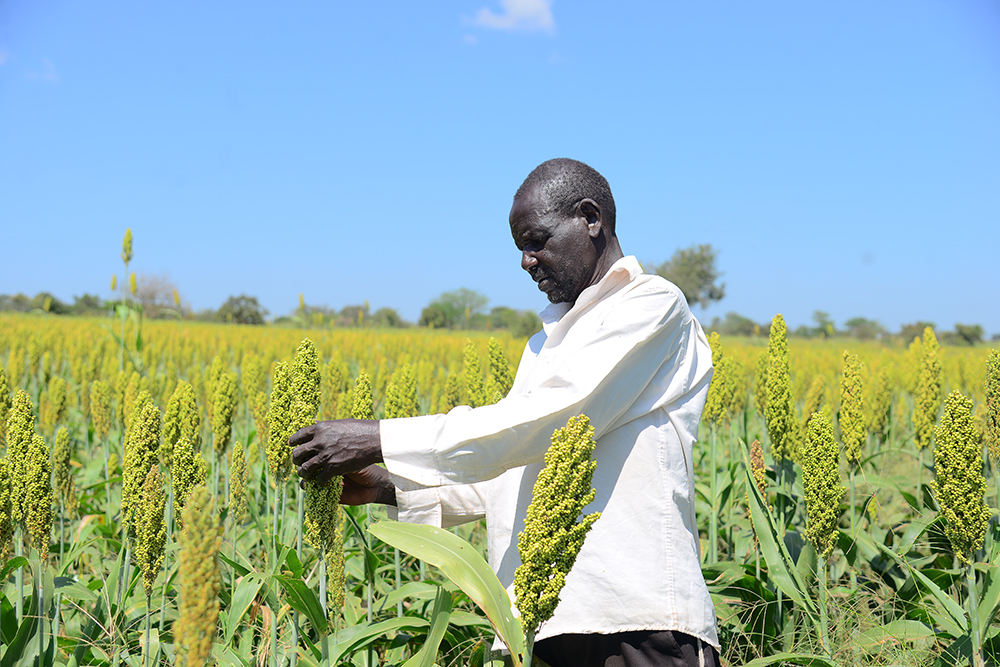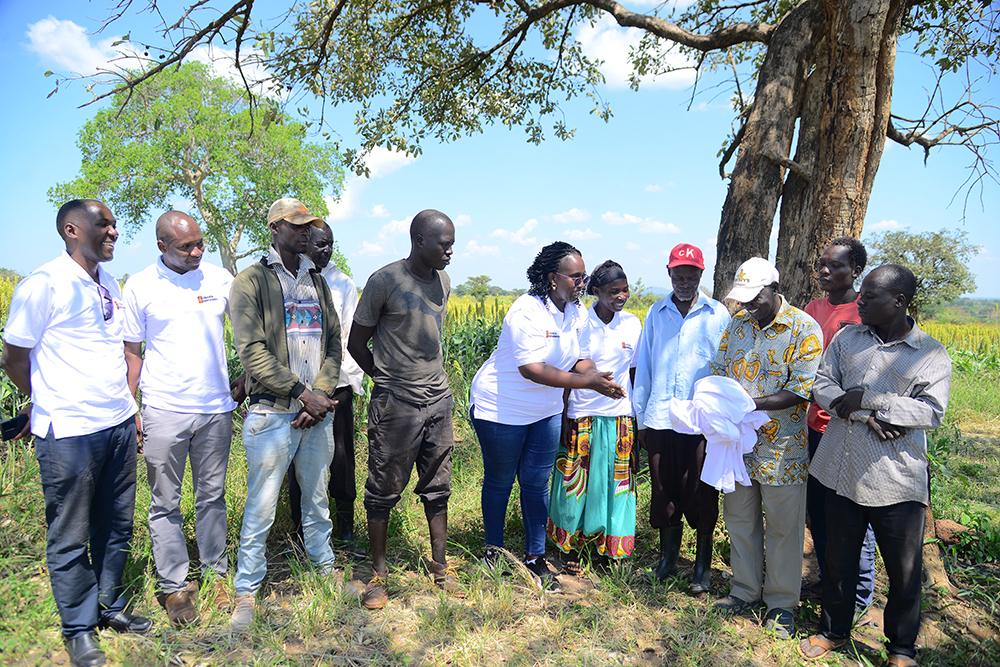By Vision Reporter
When 65-year-old James Drichi’s contract job as a security guard with one of the NGOs in Wobunzi Municipality in Luwero District ended in 2015, he didn’t know that he would become a big commercial farmer in the future.
He earns sh45m per season on his 45-acre sorghum field in Omoro District.
Drichi is one of the thousands of sorghum farmers from Northern Uganda earning money from supplying sorghum to beer manufacturers such as Uganda Breweries.
He says currently, he has six children that he is paying school fees for; two at university and the rest in primary and secondary schools.
“When I lost my job, hard life forced me to start farming in Nwoya District. It was hard because we didn’t have enough land, so I decided to relocate to Omoro. Farming has helped me because I can now send my children to school. By the way, my children are studying in one of the best schools in Gulu,” says Drichi.
His sorghum farm is located in Lakwatomer village, Koro Parish, Omoro District.

“I farm on about 45 acres on a rent basis. Per acre, I pay sh100,000 to the owner and when I plant crops like this sorghum, on an acre, I get roughly sh1m shillings per acre. I always buy high-quality seeds from Uganda Breweries at a reduced price,” said Drichi.
Drichi’s story isn’t much different from Mobutu Sese Seko, a farmer who has become a household name because of sorghum farming.
He says when he was starting, he was only a smallholder farmer but now, he has progressed well.
“I do farm on 50 acres; I make close to sh25 million per season. It has helped me pay school fees and meet other family needs,” he stated.
Apio Grace another farmer in Omoro district says last year she supplied about 30 bags of sorghum and she expects more since she has increased production.
One of the key targets of the Agro-Industrialization program in the NDP3 is to increase the agricultural sector growth rate from 3.8% to 6% and increase the number of jobs created per annum in the agro-industry value chain by 180,000.
Other targets include reducing the percentage of households dependent on subsistence agriculture from 68.9% to 55% and increasing the proportion of households that are food secure from 60% to 90%.

In line with this, Uganda Breweries has been implementing a program called Farm for Success in which it supports farmers by providing a market for the raw materials they supply to the brewery such as; sorghum, barley, and maize.
Under Farm for Success, the organization invests sh52b annually into farmer communities that supply raw materials used in the alcoholic beverages production process, benefiting 50,000 farmers in the value chain.
Uganda Breweries Corporate Relations Director Sheila Sabune while interacting with farmers said that the support to farming communities is also in line with the Government agenda of Buy Uganda Build Uganda (BUBU).
“We try to give support to these local communities because that’s where we source locally most of our raw materials that go into our production processes. We work with agronomists to help the farmers in terms of what they need to do to keep their crops healthy, and how often they need to spray. Additionally, we support farmers with subsidized seeds and also have a special focus on helping female farmers, by giving them some free seedlings”.
Sabune said that Uganda Breweries sources 95% of locally sourced raw materials from local communities, and support to communities with good quality seedlings is aimed at ensuring that the quality supplied by farmers is top-notch.
“We give support across the whole value chain, from planting to harvesting and we do not support the kind of quality that is supplied to farmers but we also have agronomists who support these farmers throughout the whole year.”
The Manager Agribusiness at Uganda Breweries Joseph Kawuki said that the farmers’ incomes from the supply of sorghum have increased because of the price stabilization. He said that the UBL team has been supported to reach and mobilize more farmers to embrace commercial farming.
“The prices have stabilized and we are now in a better position to reach more farmers. You can imagine now they have the threshers and they will thresh the crop better. We have reduced the drudgery the farmers go through to give us. I can imagine that they are even getting better,” he stated.
LEAD PHOTO CAPTION: Drichi checking on his sorghum.





